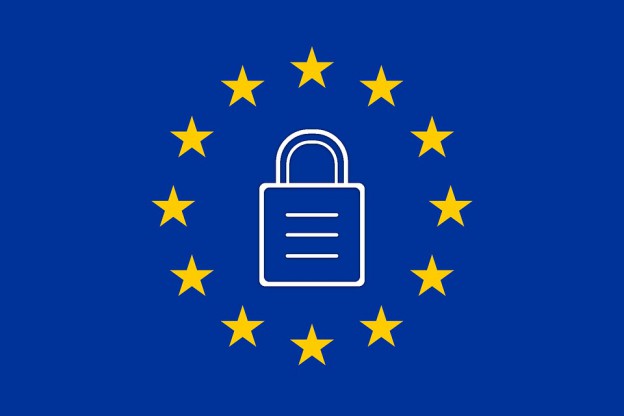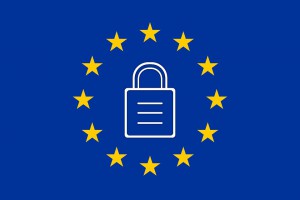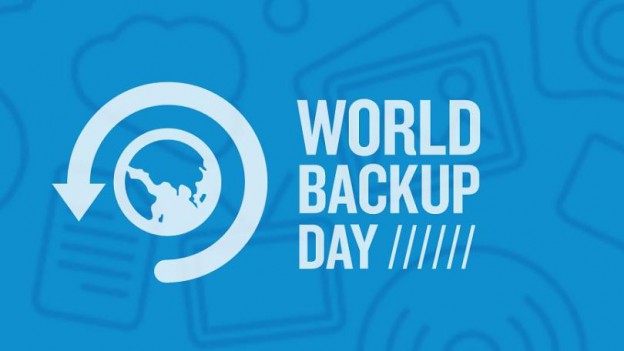Is your business’ data safe? Research suggests it’s probably not…

New research carried out in the U.S. has revealed that the majority of businesses who store credit card data using cloud storage are not doing so securely.
Information Management reported today that research by the company reviews aggregator Clutch found that over 60% of small businesses that use cloud storage for customer credit card and banking information were not storing this data securely.
Clutch’s research polled the IT decision-makers at 300 small businesses in the U.S. who currently use cloud storage.
In addition, the results showed that 54% of companies that store medical data do not do so securely.
By not storing this data securely, the businesses are breaching industry regulations on data storage.
In the U.S., this can lead to fines of millions of dollars and of course huge damage to a company’s reputation.

Keeping your customers’ data secure is crucial for any business
However, just as important – in the U.S. and everywhere else – is the need to protect customers’ sensitive financial information.
Being unable to reassure customers that their credit card and other personal information will be safe may lead to a downturn in business as customers will not feel confident giving you their data.
More than simply comprising customers’ privacy, having this kind of data unsecured leaves them at financial risk through the danger of fraud.
In the UK, with the new General Data Protection Regulation incoming, the need to ensure your cloud storage is secure and follows industry guidelines is also more important than ever.
Data breaches of unsecured cloud storage have featured heavily in the news recently. Just yesterday it was revealed that data on 123 million households in the U.S. was leaked due to a breach of an Amazon Web Services storage bucket used by a marketing company.
According to the security researcher who discovered the breach, the data included 248 fields of information for each household, meaning that “billions of personally identifying details and data points about virtually every American household” were made visible.
Safe Data Storage provide secure, fully-managed cloud backup services with extensive technical support. Data is encrypted and stored in two data centres, both based in the UK.
Safe Data Storage ranked among best cloud backups

Here at Safe Data Storage we are delighted to have been ranked as one of the best cloud storage providers in the UK for 2017 by a recent guide on a leading industry website.
Cloudwards released their ‘Best Online Backup UK Services for 2017′ guide earlier this month, and we are very proud to have been included in their top five recommendations for cloud backup services providers in the country.
The guide aims to inform readers about the best cloud storage options on the market in order to help them choose a service provider that best meets their needs.
Among the parts of our cloud backup services that Cloudwards praised were the fact that we offer a free trial, with no credit card details required, the speed with which information can be recovered, and how our backup software allows you to set what time is best for you for backups to occur.
They were also impressed with our excellent security protocols which allow us to provide secure data storage and put our customers’ minds at rest, and the fact that our software means backups can happen when your computer is not being actively used.
In addition, Cloudwards’ reviewers liked that our software can be used to provide secure data protection both for individual computers and full server systems.
We pride ourselves on offering the best cloud storage around, so it’s great to hear amazing reviews confirming this. Get in touch today to see how our online cloud backup can help your business protect its data, or take our free trial to experience our high-quality service for yourself.
Headquartered in Orpington, Greater London, Safe Data Storage have been providing secure cloud backups for businesses, educational institutions and charities since 2004. We have ISO 27001-accredited servers in London and Bournemouth and provide extensive, entirely UK-based technical support.
Your Halloween data loss horror stories

With Halloween just around the corner, we thought it was time for scariest type of surprise there is… data loss horror stories! We asked around the internet, in forums and on social media, for your worst data losses. Here’s what we found. Lock your doors and read on…
Enough to make a grown man cry…
We all know that data losses can have just a particularly devastating effect on businesses as the amount of data involved is often much larger than with individuals’ data losses. For small, local businesses, a huge data loss can even threaten their entire business’ survival.
“Data loss was responsible for the first time I saw a grown man cry,” Twitter user Jon told us. “I was a service engineer and had to tell a small business owner that his hard drive was dead.
“He lost all his accounts data going back forever.”
Stubbornness can be costly for business – very, very costly
“I’ve seen a business owner refuse to spend any money at all on a backup solution and lose 10+ years of data,” an IT professional and tech forum moderator told us. “And I see at least one post like that a week, if not more.”
Another user on a tech forum described a ‘sphincter-tightening experience’ in which he thought he had lost years’ worth of a client’s sales data after a computer malfunction. Luckily he had a backup, and was able to restore almost all of the data, only having to manually re-enter the last few months’ worth.
Many businesses have commercially sensitive data, such as information about their customers, products, or processes, that if lost and not backed up could have devastating effects for both company and customer. A significant data loss can set a business back by several years in its development.
But it can be just as devastating for personal data
“I had a 1TB external hard drive full of all my photos and other irreplaceable stuff and it got corrupted,” a Reddit user confessed to us. “I couldn’t recover everything so I lost all of my files.”
Your personal data can contain priceless memories that don’t exist anywhere else – meaning that without a backup, once they’re gone they’re gone forever. Is it worth taking that risk?
So, what can we learn from these horror stories? One thing is clear: ensuring you have a reliable backup of your data is absolutely essential in order to avoid risking your business’ survival or your school project. No wonder that, according to a recent survey by Advanced, a software company, four out of five business owners are considering using cloud backup data storage.
Make sure you don’t join the list of victims this Halloween…get in touch today to get your data safely backed up.
What is GDPR and how could it affect your business?

How Does GDPR Affect Us?
It’s been described as ‘Data D-Day’ and has business owners and industry experts alike panicking as confusion reigns. But what is GDPR and how could it affect your business?
GDPR stands for General Data Protection Regulation and refers to new laws about how data is stored that will come into effect in May 2018, replacing the 1998 Data Protection Act. This looming deadline is causing huge consternation in the data industry, with its impact unknown at this stage.
Part of the reason for the uncertainty around GDPR’s introduction is due to the UK’s impending exit from the European Union. This means that there is doubt as to whether data stored in EU countries (as opposed to the UK) will meet the data sovereignty regulations that will come into force under Brexit.
The GDPR not only applies to all organisations located within the EU, but it will also apply to organisations located outside the EU if they offer goods or services to EU data subjects – meaning many businesses will still need to remain compliant to the new GDPR laws. This is important as many organisations do no realise they will be effected by the regulations from selling their goods and services to EU Citizens. After Brexit EU countries may have different local laws about data storage than the UK – this will create legal confusion once Brexit has been completed.
The consensus among industry experts seems to be that, due to this legal grey area, the best option for British businesses is to store their data with UK-based companies offering secure cloud backup solutions in order to avoid falling foul of GDPR’s local data storage laws.
Mark Hohenberg of Hosting Techniques Limited recently gave a good summary of the situation when he told Prodec, “The safest thing for businesses that have data stored on the continent is to simply migrate it to UK-based data centres that are owned or managed by UK-based companies.”
Here at Safe Data Storage, all data is stored in the UK. Our main server is located in London, with all data replicated to another server in Bournemouth; therefore you can be safe in the knowledge that your data never leaves the country. Both of our data centres are ISO 27001-accredited.
In addition, we are taking a number of steps in preparation of GDPR’s introduction In order to ensure we are fully GDPR compliant. For example, we have appointed a Privacy Officer to work alongside employees and clients. You can read more about our GDPR preparation here.
For businesses considering data storage options, the priority should be finding a company providing UK-based, GDPR-compliant cloud backup. Remove the risk and confusion of storing your data in another country post-Brexit and see how we can keep your data safe today with secure storage.
If you have any questions about GDPR or would like help with finding the best data storage solution for your business, contact us today.
5 Data Storage trends to look out for in 2018

We’re already well into the New Year, and as is customary each January, it’s a good time to look at what we can expect to happen in the year ahead.
Making forecasts for industries as fast-moving as the data storage industry isn’t easy, but we’ve looked into our crystal ball and put together a few predictions to help you make sense of things.
1. Businesses will become more savvy about data protection
Although data protection has become an increasingly common and important concept in the business world in recent years, many businesses are still complacent about the security of their data, believing they do not need to back it up as the probability of suffering negative consequences is slim.
However, the news of huge data leaks in 2017, coupled with their customers’ increasing concern about data privacy, means that businesses of all sizes will have to take data protection more seriously this year to avoid losing customers who cannot be assured that their data is safe.
2. GDPR concerns will mean UK businesses turn back to UK storage providers
The much-discussed General Data Protection Regulation, which has been called “the most sweeping change to data protection in the past 20 years,” will be coming into force in May. This means many businesses will be panicking about ensuring they are GDPR-compliant by the fast-approaching deadline.
As we explored previously, while the impact GDPR will have on businesses is still unclear – hence the widespread panic about its introduction – industry experts believe the best option for UK businesses is to store their data with a UK-based cloud backup provider, as providers in other European countries may follow different, non-GDPR-compliant data privacy regulations.

GDPR will cause headaches for businesses in 2018
3. Data will be headline news
A combination of the previous two points means that data will be a more important news story than ever in 2018. Consumers’ data privacy continues to grow into a huge current news story, and massive cases of data leaks of sensitive consumer information will only fuel the fire. In addition, the potential for companies to be wrong-footed by GDPR is also likely to create headlines. There will be more media attention on the data industry than ever before.
4. Encryption will become more popular
One of the best ways sensitive data can be protected is through using end-to-end encryption. Safe Data Storage are among those to already provide this feature, and according to Interop’s recent 2018 State of Infrastructure study into business’ data practices, 39% of respondents said they would be investing in encryption this year, making it the study’s most invested-in area of data security.
5. Cloud storage becomes the norm
The amount of data stored in the cloud, and the amount of businesses using cloud storage, has steadily increased over the last decade or so and looks set to rise sharply in 2018 as businesses realise it is the safest place to store important data.
While tech giants such as Amazon and Microsoft provide their own cloud storage, many businesses will look to cloud backup services that offer data recovery options longer than the 30-day period often operated by the aforementioned.
What the Facebook data breach tells us about the public’s attitudes to data security

In January we consulted our crystal ball and predicted that data – in particular the public’s data privacy, and large-scale breaches of it – would be headline news in 2018. What we didn’t expect was to be proved right so soon by the massive Facebook data breach exposé that has dominated the headlines this month. Feel free to ask us for this week’s lottery numbers…
Facebook users across the world are still reeling from reports that 50 million Facebook profiles were harvested by Cambridge Analytica, a UK-based data analytics company, in an enormous data breach for use in political campaigns including Donald Trump’s presidential bid and Brexit.
Facebook users’ ‘likes’ and other information on their profiles was used to target them with political propaganda encouraging them to vote for the candidates Cambridge Analytica was working with.
The effect of the news of the breach has been to make consumers more aware of their data and how it is being used. Cambridge Analytica’s data acquisition can be traced back to Facebook quizzes in the early years of this decade where users blithely granted access to their and their friends’ data in order to take part in quizzes.
Already, as a result of this story breaking, it’s hard to imagine Facebook users casually signing over their data to third parties en masse any longer without knowing how it will be used. Indeed, many users have left the platform altogether out of concerns about the security of their data.
For businesses who handle sensitive data about their customers or users, there is a clear lesson to be learnt from this: consumers are growing increasingly aware and passionate about their online privacy and how their data is used.
It seems clear that data security will become an increasingly important factor to consumers when they are choosing between services and products.
Of course, the Facebook breach has happened against the backdrop of GDPR’s introduction, which has been worrying businesses by itself. Organisations are required to be GDPR-compliant by the fast-approaching deadline of 25 May. Read more on GDPR on our blog.
GDPR gives individuals more access to, and rights over, their data and how it is used. It will force businesses to reassess what data they collect on employees and customers and the collection of all of this information is strictly necessary.
In addition, individuals have the ‘right to be forgotten’ if they object to some of the data being collected about them.
This is clearly a landmark moment for the data industry, with consumers awakening to the importance of keeping their data secure and organisations increasingly being held to account about their data practices.
Safe Data Storage provide secure cloud backup services for businesses, education providers and charities, giving you peace of mind that your data is safe.
For more information, get in touch.
What is World Backup Day? Our Guide

If you’re an avid Twitter user, and especially if you work in technology, you may have seen publicity about World Backup Day a few weeks ago, which was celebrated on March 31st. But what is the purpose of this day and how did it start?
Make sure you’re ready for next year’s World Backup Day with our handy guide.
Background
World Backup Day was started in 2011 by digital consultant Ismail Jadun. It is celebrated on March 31st every year – a date chosen because it’s the day before April Fools Day…and of course you’d have to be a fool not to backup your data!
The day comes from humble roots; Jadun conceived the idea when he saw a Reddit post by a tech user who had lost their hard drive and wished someone or something had reminded them to back up their data.
“I thought it was a wonderful idea,” said Jadun, who then set up a day to do just that. “It’s wonderful to see people and schools around the world promoting the importance of backing up our data.”
What does it involve?
Of course, backup up their data should be on business’ minds all year round, but World Backup Day serves as a useful way of reminding people of the importance of securing their data and brings the matter into the public consciousness for a period before and after March 31st each year.
The day also raises awareness of the various ways data is at risk if not backed up, from devices being hacked or stolen to accidental deletion to viruses.
The day’s founders ask internet users to “take the pledge”, which goes as follows: “I solemnly swear to backup my important documents and precious memories on World Backup Day, March 31st.”

Twitter was flooded this year with users vowing to ‘take the backup pledge’
This year’s World Backup Day is arguably the most important yet with the impending implementation of the new GDPR, which will change many business’ data storage and protection practices.
A survey conducted for this year’s World Backup Day by its organisers found that 30% of users have still never backed up their data. Though this shows a slight reduction from figures in previous years, this is still a significant proportion of users whose data is not secured.
Safe Data Storage provide cloud backup solutions for businesses, schools and charities. For more information, get in touch today.
Data D-Day: GDPR Finally Arrives

It’s been rumbling threateningly towards UK businesses for a long time now, but tomorrow (25 May 2018) marks the deadline for businesses to become GDPR-compliant, a date otherwise known as Data D-Day.
Businesses can’t say they haven’t been warned – anxious chatter about GDPR (the General Data Protection Regulation) has been going on for months – but that hasn’t stopped many companies from putting off confronting the new regulations until the very last minute.
This isn’t surprising: there’s a reason why people are using audio of the regulations being read out to help them sleep. Trawling through the long-winded legal jargon and coming up with a plan to make your business GDPR-compliant can be tedious and hard work.
Unfortunately, like all jobs that you can’t put off forever, planning for GDPR is very important and needs to be dealt with eventually. Businesses need to ensure that only strictly necessary data is kept on customers, that up-to-date records are maintained of what data is stored where, and that processes are in place for keeping data safe.
The new regulations will put power firmly in the hands of individuals, who will now have the right to ask what information a company holds on them and request its correction or deletion if appropriate. This is the so-called ‘right to be forgotten’.
Put simply, many businesses will have to completely rethink their data collection and storage practices, and will likely have to audit the data they currently hold to ensure it meets the incoming regulations.
This is where Safe Data Storage can help. Our cloud backup services offer secure online data storage for businesses, charities and schools, allowing you to put your mind at rest knowing your data is safe.
With our services, all data stays in the UK at our two data centres, located in London and Bournemouth.
Data is fully encrypted at all points of the backup process, protecting the privacy of the individuals to which the data pertains.
For more information about how our services can help your business become GDPR-compliant, see our guide to GDPR, or get in touch today.
The Importance of Cloud Data Backup & Storage

Why Do You Need Cloud Data Backup & Storage?
Cloud data storage is becoming more popular in all professional environments. As a nation, and in-fact a country we are producing more digital data than ever before. With this unparalleled growth it is unsustainable to continue to store data in tangible objects.
Many businesses, charities and educational institutions now utilise secure offsite data storage, becoming more efficient in the process. With an increased market shift to “the cloud”, there is a new wave of concern surrounding the security of data online. Online data security is even more relevant following the recent activation of the GDPR regulations. Find out more about GDPR and Cloud Data Storage.
UK-based Cloud Backup
You can sleep soundly at night, knowing your data is stored securely on our own servers. We own all our servers meaning your files, photos and data are not shared with any third parties or other businesses. Storage is split across our two data-centres located in London and also Bournemouth where your data is replicated and stored separately. Services are available for Single User Backup or Business Backup depending on the nature of your requirements.
Encrypted Data Storage
To increase the level of protection you receive, all stored data on servers is encrypted as standard. Data you backup with Safe Data Storage remains only yours and can only be accessed by you.
From the point of initial collection at your PC terminal or other device, data is covered by an Advanced Encryption Standard (AES). Following this, any connection between you and the server to access files and data is covered using a SSL 129-bit channel.
What this really means is that your data, what ever this may be, is converted into a randomised selection of numbers, letters and symbols. Without access to an encryption key, to unlock the data it remains useless and unreadable.
Backup & Restore
One of the most important features of cloud data storage and data recovery software is knowing you can avoid disastrous data loss. Across our servers files are stored in multiple isolated locations for prevention from complete data loss. Regardless of your industry or skill, no longer having the ability to access customer, sales and other forms of data could have a hugely detrimental impact on the service you are able to offer. Additionally, subsequent data loss from unsecured storage could pose significant ramifications under GDPR regulations.
It can be incredibly easy to delete the wrong file or press something you shouldn’t have. With fully backed up data you need not worry, your files can simply be restored within minutes – even for the less tech savvy among us. No loss, no wasted work, just peace of mind your data is in safe hands.
If you would like to receive more information about being able to backup on cloud systems and restore your commercial and sensitive data, or simply want to know the best service for your needs, get in touch with a member of our team.
Advantages of Cloud Backup For Business

Benefits of Cloud Backup For Business
There are numerous advantages to having cloud storage in a business over more traditional methods. We see no reason why you shouldn’t migrate towards the cloud and here are our top reasons to make the move.
Access Anywhere
With cloud data storage your data and files are remotely backed up. This gives you the ability to access your data from anywhere you have an internet connection. Whether you are travelling no a new location for a meeting or your team are spread across numerous geographic locations as is becoming more popular with a rise in the “work from home” culture.
Increase Data Security
If you choose to store your data with a specialist company you increase the level of security your data is held in. As these firms keep a large volume of data and rely on doing so, their security measures are likely to be far higher than yours internally.
At Safe Data Storage we have two off-site data storage centres in the UK, our primary storage facility on Orpington, London and a secondary facility in Bournemouth. We only use our own servers and your data is hosted in two UK ISO 27001 accredited data centres for extra security.
Scale up on Demand
When data is hosted internally it can be a struggle to upgrade or add additional storage. This is also often expensive and many companies will choose to delete things they think they need the least to save resources. By storing your data with us it is much easier, quicker and cheaper to scale up the level of storage to meet your requirements.
Disaster Recovery
In past days disasters such as fire and floods have wiped out years worth of records, files and valuable data. Once this has happened you are left having to start again. Not with cloud backup! Your business data is kept in off-site storage, all you have to do is restore to your last backup. This greatly limits the loss and means you can continue as normal.
This is also true for accidentally deleting files. We have all been in a situation where we deleted something we shouldn’t have by mistake. While previously this could have a huge effect on numerous people and tasks, no longer. Restore the file, or data and carry on as if it never happened.
If you have any questions about how to transfer your business to cloud storage or questions on how it will benefit you, get in touch with a member of our team who will be happy to help with any queries you have.
Recent Posts
- Announcing our new Veeam partnership and capabilities
- Changes to Microsoft Authentication for Exchange Online C2C Backups
- What is C2C backup?
- Three Main Types of Schedule Backup Software
- Secure Your Business with Right Backup Software
- Backing Up Your G Suite Data
- Safe data storage for educational institutions
- Why you need backup for Office 365?
- Online backup for a small business
- Cloud Storage for Charities - What are the Options?
Categories
- All
- Cloud Backup (21)
- Cloud Reseller (9)
- Cloud Storage (11)
- Data Recovery (6)
- Data Storage (10)
- DR Services (1)
- Education Backup (11)
- Fun (1)
- In the Community (1)
- In The News (10)
- ISO 9001:2015 certification (1)
- IT Resellers (8)
- News (11)
- Old Posts (75)
- Online Backup (12)
- Online Data Storage (6)
- School Backup (9)
- Secure Online Storage (11)
- Technical (10)